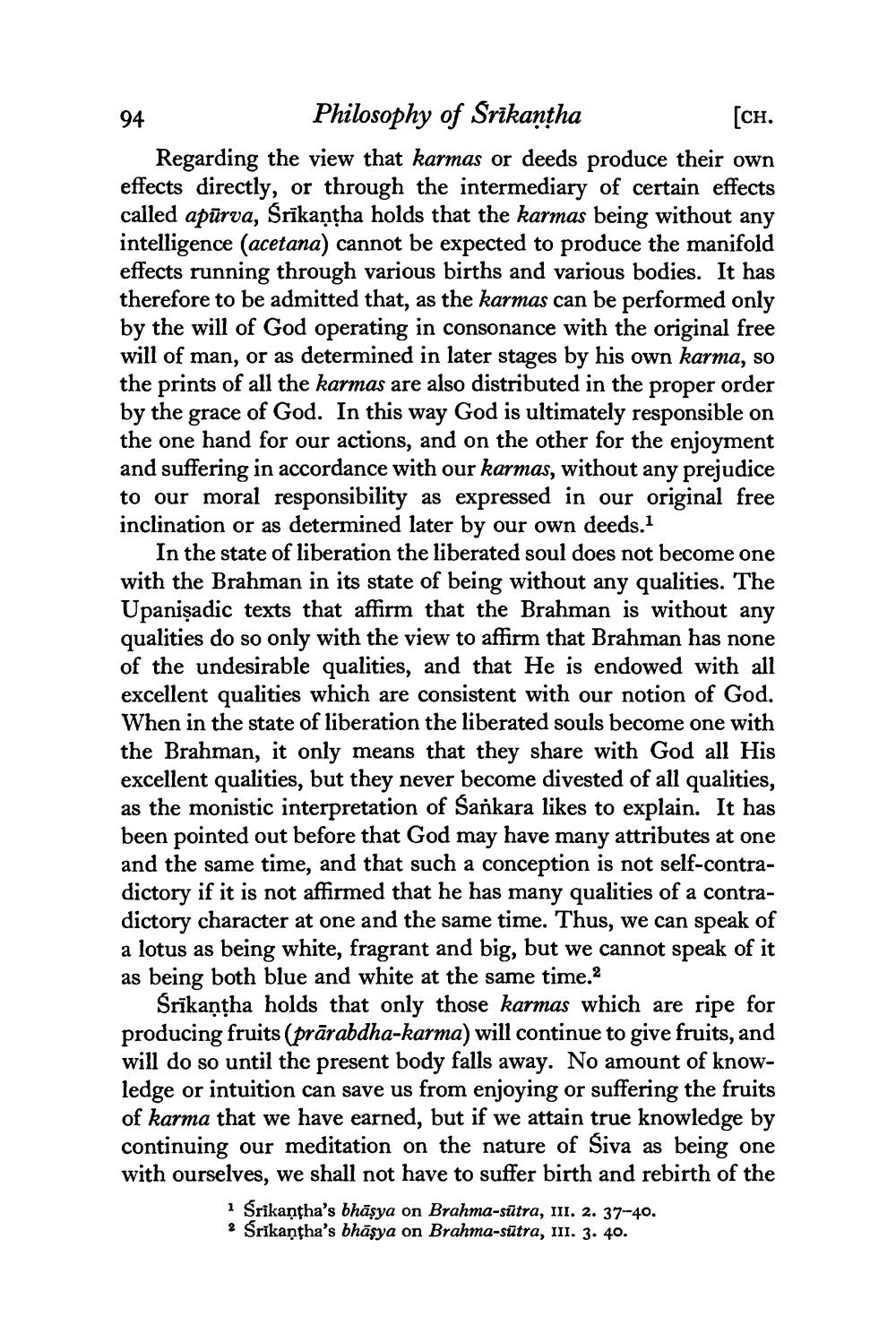________________
Philosophy of Srikantha
[CH. Regarding the view that karmas or deeds produce their own effects directly, or through the intermediary of certain effects called apūrva, Srikantha holds that the karmas being without any intelligence (acetana) cannot be expected to produce the manifold effects running through various births and various bodies. It has therefore to be admitted that, as the karmas can be performed only by the will of God operating in consonance with the original free will of man, or as determined in later stages by his own karma, so the prints of all the karmas are also distributed in the proper order by the grace of God. In this way God is ultimately responsible on the one hand for our actions, and on the other for the enjoyment and suffering in accordance with our karmas, without any prejudice to our moral responsibility as expressed in our original free inclination or as determined later by our own deeds.
In the state of liberation the liberated soul does not become one with the Brahman in its state of being without any qualities. The Upanişadic texts that affirm that the Brahman is without any qualities do so only with the view to affirm that Brahman has none of the undesirable qualities, and that He is endowed with all excellent qualities which are consistent with our notion of God. When in the state of liberation the liberated souls become one with the Brahman, it only means that they share with God all His excellent qualities, but they never become divested of all qualities, as the monistic interpretation of Sankara likes to explain. It has been pointed out before that God may have many attributes at one and the same time, and that such a conception is not self-contradictory if it is not affirmed that he has many qualities of a contradictory character at one and the same time. Thus, we can speak of a lotus as being white, fragrant and big, but we cannot speak of it as being both blue and white at the same time.2
Śrīkantha holds that only those karmas which are ripe for producing fruits (prārabdha-karma) will continue to give fruits, and will do so until the present body falls away. No amount of knowledge or intuition can save us from enjoying or suffering the fruits of karma that we have earned, but if we attain true knowledge by continuing our meditation on the nature of Siva as being one with ourselves, we shall not have to suffer birth and rebirth of the
i Srikantha's bhāşya on Brahma-sūtra, III. 2. 37-40. 2 Srikantha's bhāşya on Brahma-sūtra, III. 3. 40.




